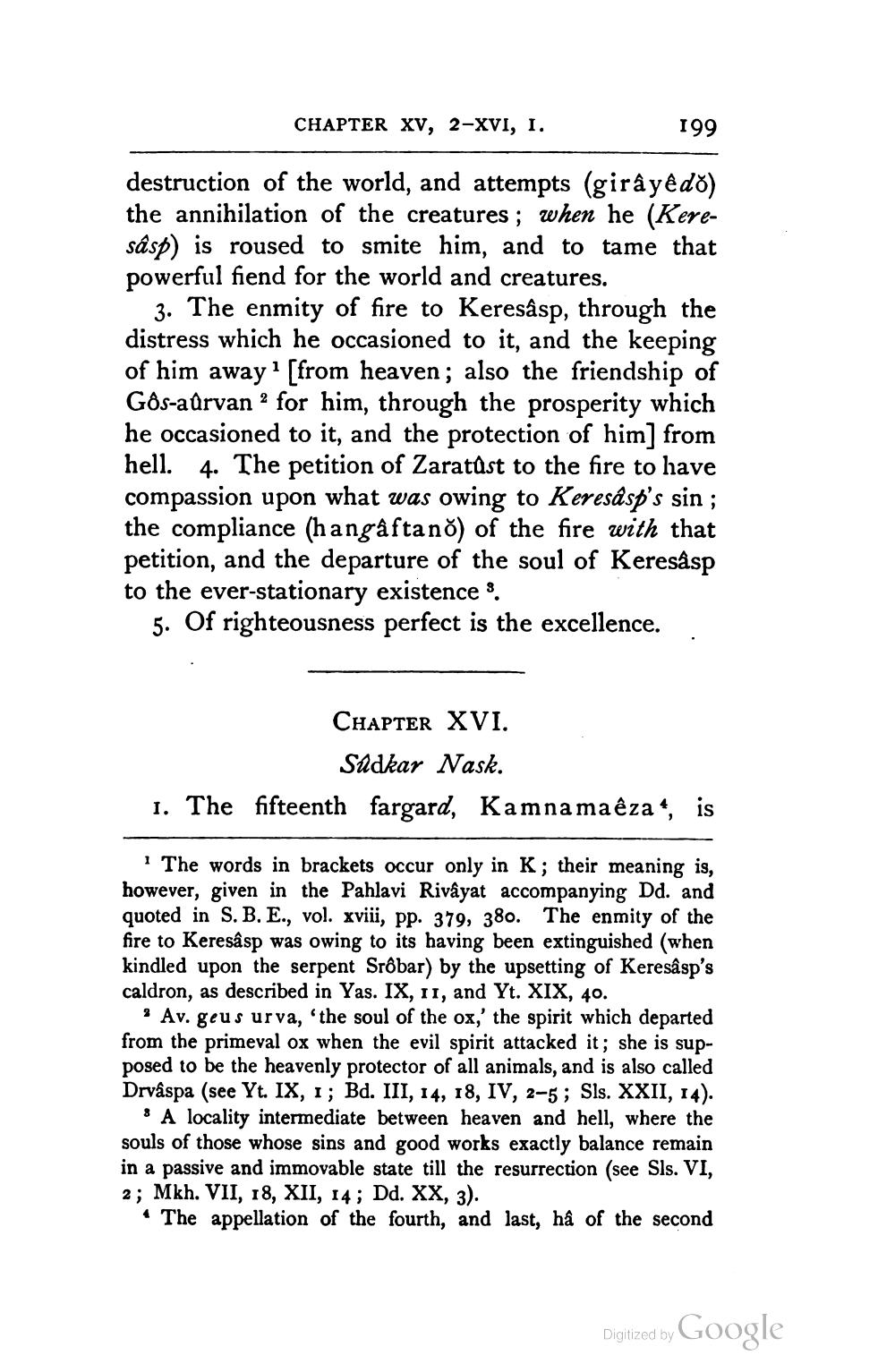________________
CHAPTER XV, 2-XVI, 1.
199
destruction of the world, and attempts (girâyêdo) the annihilation of the creatures; when he (Keresasp) is roused to smite him, and to tame that powerful fiend for the world and creatures.
3. The enmity of fire to Keresâsp, through the distress which he occasioned to it, and the keeping of him away ? [from heaven; also the friendship of Gôs-adrvan 2 for him, through the prosperity which he occasioned to it, and the protection of him] from hell. 4. The petition of Zaratūst to the fire to have compassion upon what was owing to Keresåsp's sin ; the compliance (hangâftano) of the fire with that petition, and the departure of the soul of Keresåsp to the ever-stationary existence 8.
5. Of righteousness perfect is the excellence.
CHAPTER XVI.
Sudkar Nask. 1. The fifteenth fargard, Kamnamaêza“, is
1 The words in brackets occur only in K; their meaning is, however, given in the Pahlavi Rivayat accompanying Dd. and quoted in S.B.E., vol. xviii, pp. 379, 380. The enmity of the fire to Keresâsp was owing to its having been extinguished (when kindled upon the serpent Srôbar) by the upsetting of Keresâsp's caldron, as described in Yas. IX, 11, and Yt. XIX, 40.
? Av. geus urva, 'the soul of the ox,' the spirit which departed from the primeval ox when the evil spirit attacked it; she is supposed to be the heavenly protector of all animals, and is also called Drvâspa (see Yt. IX, 1; Bd. III, 14, 18, IV, 2-5; Sls. XXII, 14).
: A locality intermediate between heaven and hell, where the souls of those whose sins and good works exactly balance remain in a passive and immovable state till the resurrection (see Sls. VI, 2; Mkh. VII, 18, XII, 14; Dd. XX, 3).
• The appellation of the fourth, and last, ha of the second
Digitized by Google




